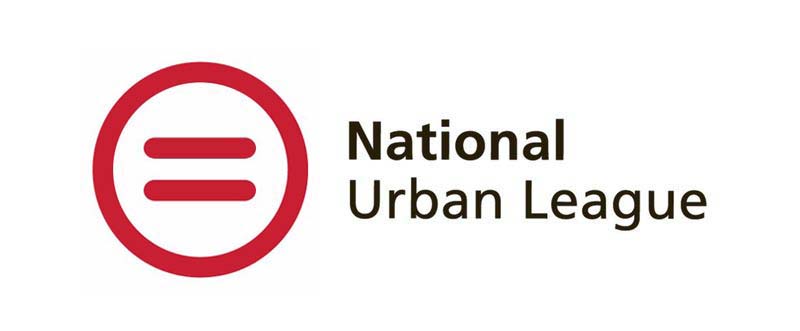Generation Z, people born between 1997 to 2012, will make up nearly a third of the workforce by 2025. People in my generation are taking the workforce by storm — whether that’s calling for pay transparency, more diversity, or mentorship opportunities. While some say we’re “difficult to work with,” we’re just like every other generation. We’re bringing new ideas, opinions, and styles that reflect our upbringing into the (sometimes virtual) office. So, what’s Gen Z really like in the workplace? Here are some Gen Z statistics that show what we’re up to at work.
>>MORE: 8 Things You Need to Know About Gen Z in the Workplace, According to Gen Zers
Gen Z Statistics on Salary: We Want a Good Salary, for a Good Reason
It’s not just a Gen Z stereotype that this generation cares a lot about salary. According to Handshake, 70% of Gen Zers put pay/salary as a top aspect they want from their next job; 65% of Gen Z says pay transparency in a job description is one of their biggest motivators when applying for a job.
Yet Gen Z isn’t just dreaming of big figures because they’re obsessed with money. Instead, they care about salary because they’re worried about the economy and their financial health. One in two members of the class of 2023 says current economic news impacted their career prospects, according to Handshake’s 2023 Network Trends Report.
“They’re a really realistic generation,” Farah Mohiuddin, Forage customer success manager and early talent expert, says. “They grew up with a lot of economic uncertainty, and they’ve seen what millennials have gone through with the student debt crisis. They realize that they need to make money. They’re not talking about buying a house — they just want to survive.” (According to McKinsey, only 41% of Gen Zers expect to own a home one day.)
Other Gen Z Stats About Salary
- Gen Z says they need more money than other generations to feel financially secure.
- The median annual salary for people 20-24 years old ranges from $29,887,90 in Mississippi to $48,378.45 in Massachusetts, according to GOBankingRates; most median salaries for this population are between $30,000 and $35,000, depending on the state. Yet when you add up average monthly expenses for a single person in the U.S., it comes to $44,312 annually, according to NerdWallet,
- 65% of Gen Zers feel like they’re living paycheck to paycheck.
- 58% of Gen Z report they have two or more unmet social needs, such as “income, employment, education, food, housing, transportation, social support, and safety,” according to McKinsey.
Gen Z Statistics About DEI: We Want an Employer Who Cares About Inclusion
Eighty-three percent of Gen Z candidates say that a company’s commitment to diversity, equity, and inclusion (DEI) is important when choosing an employer, according to Monster.
“They care a lot about the values of an organization,” Mohiuddin says. “They want them to walk the walk and not just say they care about diversity. They’re really holding employers accountable.”
Gen Zers hold their values close. According to LinkedIn, most Gen Zers (87%) said they’d be willing to leave their current job if they could work for another company with values that aligned more closely with theirs.
It’s not just what the employer does but also who represents the company that matters.
According to a survey from Tallo, 69% of Gen Zers would be more likely to apply to a job with recruiters and materials that reflected an “ethnically and racially diverse” workforce. In addition, over half said they’d probably be more likely to apply to a role if the recruiter shared their ethnic or racial identity.
Other Gen Z Stats About DEI
- One in five Gen Zers says their own experience with inequality and discrimination has affected their career choices, according to the National Society of High School Scholars (NSHSS).
- Gen Z is the most ethnically and racially diverse generation yet. Just under half of Gen Zers identify as an ethnic or racial minority: one in four Gen Zers are Hispanic; 14% are Black, 6% are Asian, and 5% identify as some other race or two or more races.
- 86% of Gen Z job seekers say they plan to participate in a company’s DEI or employee resource group (ERG) committee or contribute to a company’s DEI strategy, according to Tallo.
Gen Z Statistics About Tech: We Care About Our Tech (Including When We Mess It Up)
Gen Z has a reputation for being screen-obsessed. On average, Gen Z got their first smartphones before they were teenagers, according to YPulse. I remember getting my first smart phone — with a slide-out keyboard! — in the fourth grade. Since then, I’ve always had a smartphone, like most of my generation. Today, nearly all Gen Zers (98%) have a smartphone.
In the workplace, this makes us a little more discerning about a company’s technology than our generational counterparts. According to surveys from Adobe, 70% of Gen Zers would leave their current role for better technology, compared to 52% of Gen Xers and 37% of Baby Boomers.
Gen Zers seem to feel the burden of being tech whizzes. This generation is five times more likely to feel judged and ten times more likely to feel ashamed when facing remote meeting issues, compared to people over 50.
Other Gen Z Stats About Technology
- Gen Z is the most likely generation to meet via video, according to Zoom.
- 36% of Gen Z prefers messaging tools like team chat, compared to 51% of millennials. Gen X and Baby Boomers prefer to communicate via email, (35% and 42%, respectively).
- In Zoom’s survey, Gen Zers said they dislike the corporate jargon ““I’ll ping you” and “take this offline” the most.
- While all generations use social media, most Gen Z respondents (58%) use social media for at least an hour a day, according to a McKinsey survey. Over a third (35%) of Gen Zers use social media for more than two hours a day.
>>MORE: Learn what Gen Z’s saying in the workplace with 25 Phrases Gen Z Uses at Work.
Gen Z Statistics About Work Environment: We Like Working From Home, but Face Remote Challenges
Gen Z tends to lean toward working from home — and one in five of them have never worked in person, according to Skynova. According to a study from GOBankingRates, over half of Gen Z likes remote work; 29% say they prefer to work remotely (the lowest of any generation), and 27% say remote working is a necessity (the highest of any generation).
On the other hand, 17% prefer hybrid work, and 14% don’t want to work remotely at all.
Source: GOBankingRates.com
Although a large percentage of Gen Z prefers remote work or considers it essential, making friends, networking, and finding a mentor are some of their biggest challenges. More than a fifth of Gen Zers (21%) report having no friends at work. Baby boomers were nearly twice as likely to say they make most of their friends at work, according to JobSage.
And even if they like working from home, Gen Z wants in-person mentorship, according to the NSHSS: 63% said they’d prefer in-person training from their employers, while 13% prefer online.
Other Gen Z Stats About Work Environment Preference
- 70% of Gen Z say they’ll look for another job if their employer requires them to be in the office full-time, according to ADP.
- According to Harris Poll, more than half of Gen Zers (55%) feel like they’ve missed out on an important part of adulthood because of how the pandemic affected office culture.
- Gen Z is 77% more likely to click on a job opening that mentions “flexibility” than one that doesn’t, according to Axios.
- Gen Zers prefer having autonomy in choosing where they work instead of having their employer mandate when they come in, according to Deloitte.
Gen Z Statistics About Mental Health: We Face More Mental Health Challenges, but We Advocate for Ourselves
Gen Z struggles with mental health at a higher rate than their generational counterparts; over half of Gen Zers have either been diagnosed with or have received (or are receiving) treatment for a mental health condition, according to McKinsey. Thirty-one percent of people aged 55 to 64 report the same, who have decades longer to seek treatment.
While mental health has historically been a more taboo topic at work, my generation is becoming more vocal about these challenges and advocating for themselves when it comes to taking time off. A majority of Gen Zers (62%) have taken a mental health day at school or work, and 15% have discussed mental health with their manager. Managers have generally responded positively to these conversations; Gen Zers report that their managers were supportive 91% of the time.
More Gen Z Stats About Mental Health
- Gen Z’s top diagnosed mental health conditions are anxiety (90%) and depression (78%).
- One in five Gen Zers attends therapy, and pays an average of $149/month to cover the cost.
- 68% of Gen Zers say mental health benefits are important or very important to them, compared to 74% of millennials, 59% of Gen X, and less than half (48%) of Baby Boomers.
Gen Z Statistics About Job-Hopping: We’re Not Afraid to Leave a Role
Gen Z is busting the old-school career myth that you have to “put in your time” at a job before changing to a new role.
While it’s normal for younger generations to job-hop more than their older counterparts, Gen Z’s job-hopping habits traverse industry norms.
Eighty-three percent of Gen Zers consider themselves job hoppers, according to ResumeLab. Most members of their generation intend to stay with their employer for two years or less; only 13% of Gen Zers say they intend to stay more than four years with their current employer.
Three in four Gen Zers say they’re willing to switch career paths entirely, compared to less than half of people in older generations, according to LinkedIn. Their main reasons for job-hopping include: finding a position that better suits their interests or values, opportunities to get new skills, and better compensation.
Other Gen Z Stats About Job-Hopping
- Gen Zers are switching jobs at a rate 134% higher than before the pandemic in 2019, according to LinkedIn. Comparatively, millennials changed jobs 24% more, and boomers switched 4% less.
- Gen Z is more likely to work multiple jobs (25%) than the average professional (16%), according to McKinsey.
- Switching jobs paid off: Gen Z job-hoppers got nearly a 30% average raise from changing jobs in the last year, according to the Bank of America Institute.
Gen Z Statistics About Upskilling: But We’ll Stay in a Role if We Can Learn New Skills
One of Gen Z’s main reasons for job-hopping is to upskill in their next role: 67% of Gen Zers want to work at companies where they can learn skills to “advance their careers,” according to NSHSS.
Gen Z is ready and looking to learn, and they’re doing so in service of their career ambitions. They’re the generation most likely to say they want to upskill “if it helped me get another job internally, be promoted or get closer to reaching my career goals,” according to LinkedIn. Those career goals are ambitious, too — Gen Z is more than twice as likely to want to be CEO compared to Gen X.
>>MORE: Gen Z can learn the skills they need to be workplace ready with Forage job simulations.
Other Gen Z Stats About Upskilling:
- Gen Z spends 12% more of their time on LinkedIn Learning building their hard skills compared to the average person, according to LinkedIn’s Workplace Learning Report.
- Gen Z prefers mobile learning more than any other generation (LinkedIn).
- 76% of Gen Zers see upskilling as key to their career advancement (LinkedIn).
Learn more about Gen Z at work with ‘Problems’ With Gen Z in the Workplace (From a Gen Zer) — And How to Fix Them.
Image credit: Canva



